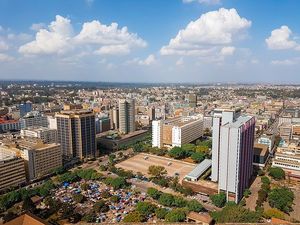Since the gospel came to Kenya it has flourished amidst diverse political factors. The British colonial system had both positive and negative effects on missionary work. Positively, missionaries were able to preach the gospel in the stable environment of a political structure with which they, at least, were familiar. Some even acted as administrators for the government.
Negatively, many Kenyans identified missionaries with their colonial masters and, as a result, left mission churches to form African independent churches, of which there are many today. These Africans had, in effect, confused ‘the gospel’, or message, with ‘the missionaries’, or messengers. Moreover, sadly, a type of syncretism was born in these bodies in which Christianity was mixed with traditional religions. This development, no doubt, took place partly to escape the previous missionary-colonial ethos.
Divergent thinking
Secondly, after political independence in 1963, a new political system was born, which led to a sometimes uneasy relationship between churches and state. For example, attempts by preachers to point out social and political ills were sometimes resented by politicians. Whereas the colonial system had worked in harmony with the missionaries, a divergence of thinking was now apparent between the government and some of the churches.
Still more confusion has followed the advent of multi-party politics in 1993. Some churches have supported opposition parties, while others have supported the government of the day. Thus political involvement has become a hindrance to the gospel’s progress in Kenyan society. The great need now is for all the churches to major on the preaching of Jesus Christ and him crucified.



